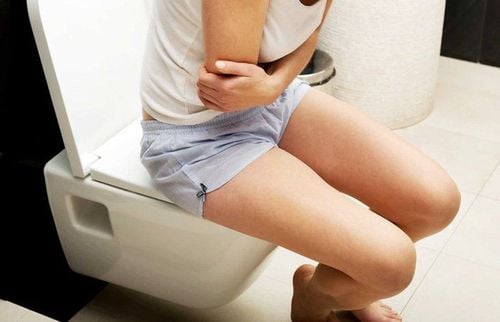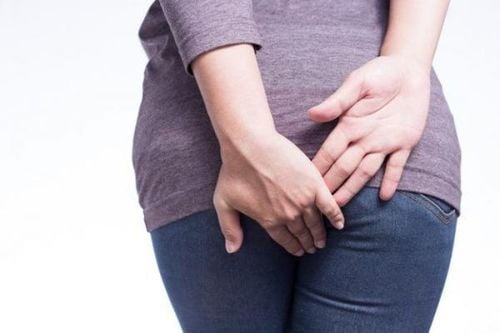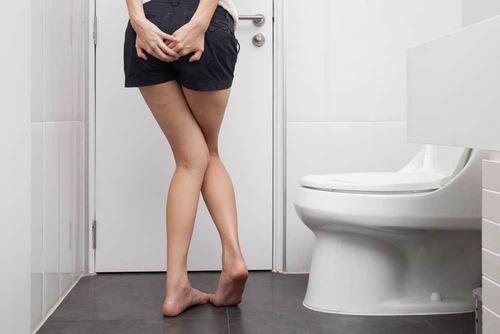The article was professionally consulted by Specialist Level 2 Doctor Tran Thi Mai Huong - Department of Obstetrics and Gynecology - Vinmec International Hospital in Hai Phong.
Hemorrhoids are caused by excessive dilation of the hemorrhoidal venous plexus in the tissue around the anus and rectum. Normally, these tissues help control the passage of stool. When these tissues become inflamed and swollen, they are called hemorrhoids. Hemorrhoids are caused by excessive dilation of the hemorrhoidal venous plexus in the tissue around the anus and rectum. Normally, these tissues help control the passage of stool. When these tissues become inflamed and swollen, they are called hemorrhoids. Hemorrhoids are caused by excessive dilation of the hemorrhoidal venous plexus in the tissue around the anus and rectum. Normally, these tissues help control the passage of stool. When these tissues become inflamed and swollen, they are called hemorrhoids. Hemorrhoids in pregnant women account for a high rate and cause several discomforts, affecting pregnant women
1. Overview of hemorrhoids
Hemorrhoids are a common disease in the group of diseases of the anal region. Although hemorrhoids do not cause immediate death, they greatly affect the quality of life of the patient. This disease is common in patients who often have increased abdominal pressure, such as: Pregnant women, patients with constipation, patients who sit for a long time, etc.
Especially in pregnant women, the female sex hormone progesterone increases, causing the intestinal muscles to relax, and affecting the contraction of intestinal peristalsis, making pregnant women prone to constipation, which in the long run will turn into hemorrhoids. When the fetus grows large, it not only increases the pressure in the abdomen but also compresses the blood vessels in the pelvic floor, making it difficult for blood to circulate, causing swelling and leading to hemorrhoids.
Some women have an episiotomy during childbirth; when the mother is stitched, some blood vessels in the anus may be stitched, so after a while, they are very susceptible to hemorrhoids. The first normal birth requires strong pushing; the mother uses all her strength to push the fetus out, which makes hemorrhoids worse. When the sphincter muscles have not yet recovered and the mother becomes pregnant a second time, the condition of muscle relaxation will become more severe, making hemorrhoids even worse

2. Can pregnant women with hemorrhoids give birth normally?
In general, pregnant women with hemorrhoids can give birth normally. In cases where hemorrhoids are too swollen, causing pain and making it impossible to defecate, surgery is required. However, mothers also need to wait at least 6 weeks after giving birth before being able to perform hemorrhoidectomy because they have to wait for the muscle tissue in the anus to return to normal. At this time, the doctor will help assess the level of hemorrhoids and choose the appropriate treatment method. Except for some cases, hemorrhoids need to be treated before or immediately after birth. Before deciding on the patient, the doctor must consider the specific benefits and risks, such as:
- When suffering from thrombosed external hemorrhoids: This is a case that requires emergency surgery, hemorrhoidectomy. However, in cases where the patient is a pregnant woman, anesthesia should only be performed with local anesthesia. Local anesthesia can treat thrombosed hemorrhoids well and does not affect the fetus. If spinal anesthesia is used, it can affect the fetus and can cause miscarriage or premature birth. Obstetricians and gastroenterologists need to consult and give the best treatment method for the patient.
- When hemorrhoids grade IV bleeding: In specific cases, the doctor will use temporary treatment measures such as: using vasoconstrictors, increasing the strength of the vascular wall, such as Daflon (this drug has not been recorded to affect the fetus, allowed for pregnant women); pain relievers, hemostatic drugs; instructing the patient to soak in warm water; soak in soapberry water... to help shrink hemorrhoids and stop bleeding. After giving birth, the doctor will treat the patient's hemorrhoids later.
3. Solution
- When going to the toilet, try not to strain; do not sit long, causing pressure on the anus. Practice defecating regularly at a certain time of the day.
Increase fiber-rich foods, drink plenty of water, and exercise regularly, such as walking or doing pelvic exercises, to promote blood circulation and increase flexibility for the muscles in the genital area, making labor easier and helping to shrink the vulva. - Soaking the lower body in hot water for 10–15 minutes a few times a day helps to bring a feeling of relaxation, stimulate blood circulation, and reduce pain, patients can also use ice packs to apply to the area that needs to reduce swelling and discomfort.
- Clean the anal area after each urination. Use soft, odorless, colorless toilet paper to avoid damaging the anus; or can use wet towels instead of toilet paper.Patients should limit sitting for too long; when lying down, they should lie on one side and avoid lying on their back or stomach. Lie on the left side to reduce blood stasis in the pelvic and anal areas.
Pregnant women should go for a check-up and inform their doctor about their medical condition so that the doctor can examine and monitor them during pregnancy until nearly the labor date and then advise on specific birth methods.
To arrange an appointment, please call … or make your reservation directly HERE. You may also download the MyVinmec app to schedule appointments faster and manage your reservations more conveniently.














